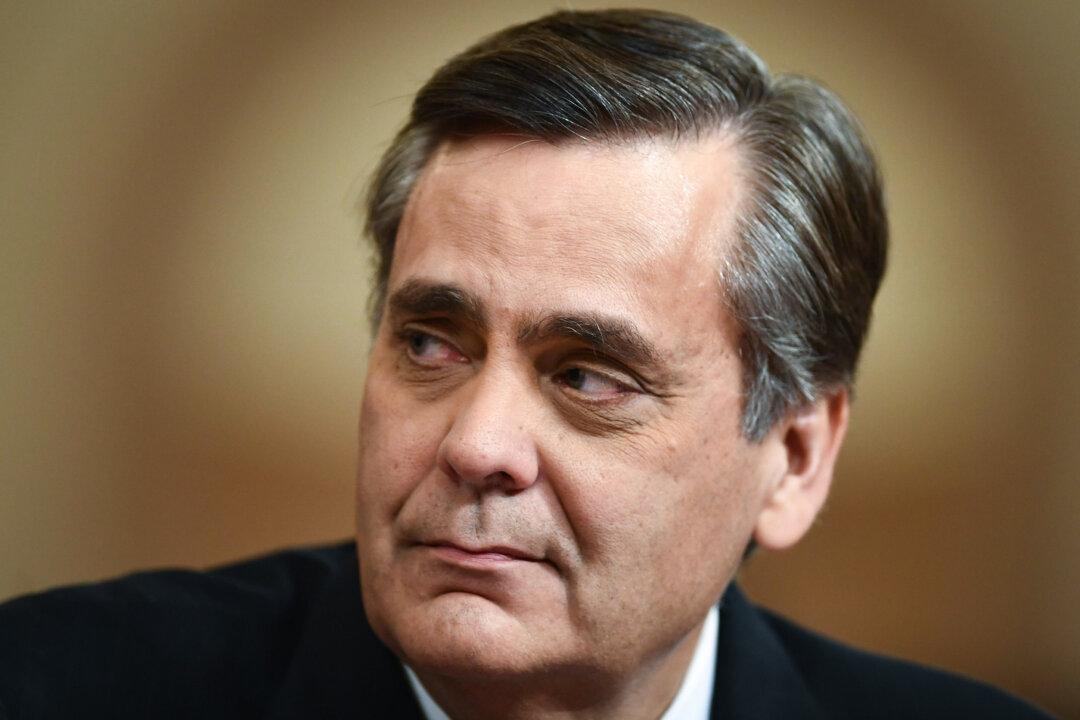Jonathan Turley, a prominent law professor who was in the courtroom during Wednesday’s proceedings in former President Donald Trump’s criminal trial in New York, said that he sees signs of “early disagreement” among the jury after jurors asked to rehear the judge’s instructions.
Jurors in the case deliberated on May 29 after being given instructions by Judge Juan Merchan, which included telling them that they don’t need to be in agreement on the “unlawful means” that underpin the alleged underlying crime of conspiracy to promote or prevent an election, which prosecutors are relying on to elevate a misdemeanor business records falsification charge to the rank of a felony.





